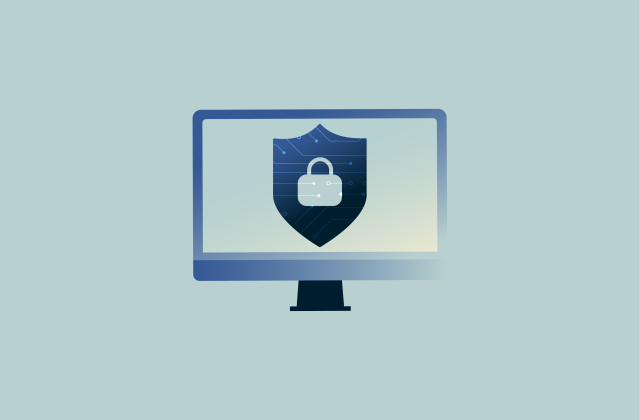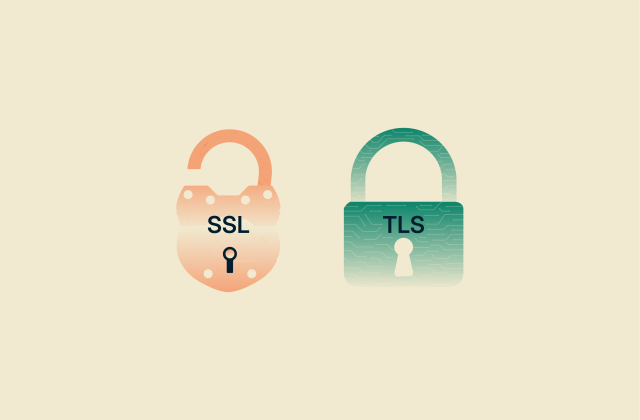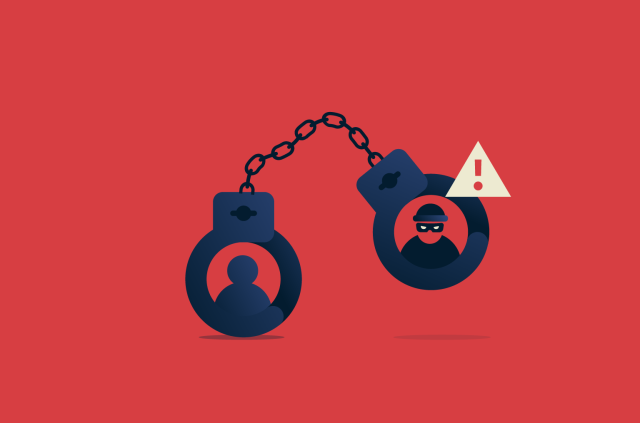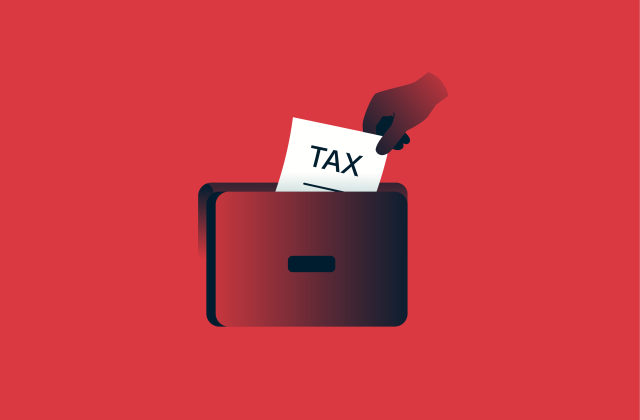How do I freeze my credit? A guide to security and protection

You can freeze your credit at each of the three main credit bureaus online, by phone, or by mailing your request. This prevents unauthorized access to your credit reports, especially by scammers and identity thieves trying to open a new line of credit in your name.
In this guide, we’ll discuss how to freeze your credit for free, when and why you should do it, how to unfreeze your credit when necessary, and cover other essential information related to credit freezing.
Please note: This information is for general educational purposes and not financial or legal advice.
Freezing your credit in 3 simple steps
Here’s a quick guide to placing a credit freeze on your reports.
Step 1. Contact each credit bureau
You need to freeze your credit individually with each of the three main credit bureaus: Experian, TransUnion, and Equifax. Contact them online, by phone, or by regular mail.

Step 2. Provide required personal information securely
You must verify your identity with the credit bureaus to help them confirm that someone else isn’t trying to make a change to your credit reports.
Depending on the credit bureau you contact and how you contact them (phone, mail, or online), the verification requirements may differ.
Overall, here are some common verification items that may be requested:
- Social Security Number (SSN)
- Your name
- Your address
Step 3. Confirm freeze and secure your password
Once you’ve verified your identity, you should either have access to your credit account (online), or the credit bureau agent assisting you (via phone or mail) should be ready to freeze your report.
If you’ve created an online account, remember to choose a secure password and keep it safe, which prevents unauthorized access to your credit freeze management.
What is a credit freeze?
A credit freeze (also known as a security freeze) is an action that allows you to limit who can access your credit reports at each of the three credit bureaus.
Once you initiate a credit freeze, credit bureaus restrict your credit file from new creditors and lenders. This often leads to the rejection of new credit applications, which works in your favor if an identity thief tries to open a new line of credit or take out a loan in your name.
However, the credit freeze affects you (the account owner) in the same way. Unless you remove the credit freeze, you may be unable to get new loans or credit.
The time it takes to freeze or unfreeze your credit report with the three credit bureaus differs, depending on how you applied. Typically, both freezing and unfreezing requests made by phone or online will be processed immediately (allow for a few minutes of delay), and those made via regular mail will take up to three days.
Why and when to freeze your credit
Initiating a credit freeze can be a great move for your financial peace of mind, but it might also not be the best choice in all situations.
Common reasons for freezing credit
A credit freeze is the right step to take in these situations:
- Protecting a child: Children often don’t have credit files but can still be targeted by identity thieves who manage to obtain their SSN. Freezing their credit is not only effective but convenient, as you likely won’t need to unfreeze it for years.
- After a data breach: If your sensitive personal information was released in a data breach, a credit freeze can help block credit access to scammers while you work on securing your accounts.
- You recently lost your wallet: Thieves may use sensitive personal information from your wallet’s contents (such as your Social Security card, driver’s license, etc.) to try and open new lines of credit with new or existing creditors.
- There’s suspicious activity on your account: Reliable credit monitoring services (like ExpressVPN Identity Defender) may notify you of suspicious credit activity.
Situations where a credit freeze may not be necessary
While credit freezes are great for maintaining financial and credit health, they’re not ideal in all cases:
- Your online banking passwords leaked: A credit freeze might not stop someone who already has your online banking password, since they can log in to transfer funds. In this case, you need to change your compromised details rather than stop credit access.
- Preventing background checks: Even with a credit freeze active, credit bureaus may still allow background verification companies access to your credit reports.
- Keeping debt collectors away: Credit bureaus may also provide a copy of your credit report to legitimate debt collection agencies, with or without an active freeze. A credit freeze also doesn’t block or erase your existing debt.
- You’ve lost your credit card, or it got stolen: In this case, consider blocking the credit card and reporting it lost or stolen to the issuer. A credit freeze won’t stop anyone who finds the card from using it, if they can.
Understanding cybersecurity risks that make credit freezes essential
You wouldn’t need credit freezes if everything you did on the internet was secure, companies with your data never suffered data breaches, and all the networks you connected to were secured. But that’s just not how things work in real life.
How threat actors steal personal data online
Cybercriminals are getting increasingly sophisticated with how they steal your data online, especially through phishing attacks (including smishing and vishing).
For example, you may get a text or email claiming you’re eligible for more tax refunds, with a link to an IRS-lookalike website where you’re prompted to enter sensitive details such as your SSN. But Instead of reaching the IRS or another legitimate organization, the information you enter goes directly to cybercriminals who created the fake web page.
Our extensive phishing identification and prevention guide helps you steer clear of this type of online danger.
Public Wi-Fi risks and why VPN matters
Public Wi-Fi connections are often unsecured, which leaves data transmitted on such networks exposed to cybercriminals.
Thankfully, most websites today use HTTPS, which secures information you enter on them, even on public Wi-Fi networks. However, the same protection isn’t extended to all of your internet traffic, which may contain sensitive data such as your SSN and passwords.
That’s why a VPN is still essential to encrypt all your internet traffic (not just your connection to websites). That way, you keep network admins and internet snoops from harvesting your information for financial identity theft.
Data breaches and the rise of identity theft
It’s unsettling to realize that the security of your data isn’t entirely under your control. Organizations that hold sensitive user information are frequent targets for cybercriminals, and there’s little individual users can do to fully eliminate this risk. These breaches affect all types of organizations, including government (such as the Los Angeles Housing Authority hack), healthcare (Yale New Haven Health breach), and technology (MOVEit breach) institutions.
The worst part is that some of these data breaches often go months before detection. For instance, in the case of the Los Angeles Housing Authority, network admins only found threat actors in the system after 11 months.
Therefore, even if you’ve done everything possible to secure your data, the risk of organizational data breaches makes credit freezes important.
How to freeze your credit with all three bureaus
Freezing your credit at one bureau doesn’t translate to the other two. So, you need to contact Experian, Equifax, and TransUnion independently to freeze your credit with each one of them.
| Experian | Equifax | TransUnion | |
| Online | Online account | Online account | Online portal |
| Phone | 1-888-397-3742 | Automated: (800) 349-9960
Live agent: (888) 298-0045. |
800-916-8800 |
| Experian Security Freeze
P.O. Box 9554 Allen, TX 75013 |
Equifax Information Services LLC
P.O. Box 105788 Atlanta, GA 30348-5788 |
TransUnion
P.O. Box 160 Woodlyn, PA 19094 |
You’ll need to prove your identity to the credit bureaus you contact using information such as your:
- Full name
- Social Security number
- Current address
- Previous address(es)
Note that the three credit bureaus no longer issue a PIN to manage your credit freezes. Instead, your online account suffices. If you choose to contact them via mail or phone call instead, they’ll verify your identity using other means, such as via questions and documentation.
That said, you may be unable to use the online or phone call option in some cases, such as when freezing a child’s (or minor’s) credit report.
Who can access your frozen credit report?
Freezing your credit report may restrict access from new creditors, but your frozen credit report may remain accessible to some entities, such as:
- Yourself: You can always access your credit reports whenever you want, even with an active freeze.
- Current creditors: Anyone you have a current line of credit with will still have access to your credit reports.
- The government: Government officials may request your credit report from any or all of the three credit bureaus, and they may be legally obligated to give it up.
- Background verification companies: Background verification checks, such as those required by employers, often get outsourced to third-party companies. These companies may get access to your credit reports (even with an active freeze) to complete their verifications on behalf of the requester.
- Debt collectors: If you have any existing debt, a debt collection agency may be able to see your credit report.
- Insurance companies: Some insurance companies may still see your credit reports (even when frozen) to renew or manage your insurance account. This may vary by state laws.
- Marketers: Some marketers may be able to see a version of your credit report called a prescreened report to send you pre-approved offers. This report doesn’t give them full access to your credit history; it only lets them know whether you meet basic criteria for credit offers (like credit cards or loans). You can opt out of these offers by visiting optoutprescreen.com.
How to unfreeze your credit
Unfreezing your credit, whether temporarily or permanently, allows you to access new credit facilities. Here’s everything you need to know.
Temporary vs. permanent unfreeze
You can choose to unfreeze your credit for a while (such as to allow a new creditor to check your credit report) or permanently. Experian, for example, also allows you to schedule a thaw that temporarily unfreezes your credit and reinstates the freeze whenever you want.
Even when you’re no longer at current risk of identity theft, consider not permanently unfreezing your credit report. Given that the credit freeze doesn’t affect your credit score in any way, the extra peace of mind that comes with credit freezes may be worth it.
Reasons for unfreezing your credit
The biggest reason to unfreeze your credit report is to apply for a new line of credit. This allows a new creditor to see your credit history, based on which they can process your application and set appropriate terms.
How to freeze your child’s credit
Freezing your child’s credit can’t be done via an online account if they’re under 13 since the law (the Children’s Online Privacy Protection Act) prohibits online collection of children’s data.
Therefore, the only option available to you across the three credit bureaus is physically mailing a minor credit freeze request. Additionally, Experian allows minors 14 years old or older to freeze their credit online or via mail, while Equifax allows minors aged 16 to 17 years to place a credit freeze by themselves via phone call or mail.
Freeze your child’s credit at Equifax
Equifax requires you to include a series of documents in your mail requesting a minor credit report freeze, such as copies of:
- Your proof of identity: This could be your government-issued ID (such as a driver’s license), Social Security card, or birth certificate.
- Proof of relationship to the child: Acceptable documents include the child’s birth certificate (on which you’re named), foster care certification, a court order, or a lawfully executed and valid power of attorney.
- The child’s proof of identity: A birth certificate or Social Security card should suffice.
Then, print and fill out the Equifax security freeze request form. Once you have these documents, you can send them in one package to the Equifax security freeze mailbox below:
Equifax Information Services LLC
P.O. Box 105788
Atlanta, GA 30348
Freeze your child’s credit at Experian
When sending the minor credit freeze request to Experian via mail, you need to include some copies of documentation, including:
- Proof of your identity: Driver’s license or other government-issued ID cards.
- Proof of address: Bank statement, utility bill, insurance statement, or other acceptable proof.
- The child’s birth certificate.
- Proof of guardianship: Required if you’re not named on the child’s birth certificate.
- A copy of your child’s Social Security card.
Once you have these documents, fill out an online form on Experian’s Child Identity Theft Protection page, making sure to choose the right request (Add or remove a security freeze for a minor).
Then, print the completed form and mail it alongside the other documents to the address below:
Experian
PO Box 9554
Allen, TX 75013
If you’ll be using overnight mail, use this address instead:
Experian
701 Experian Parkway
Allen, TX 75013
Freeze your child’s credit at TransUnion
TransUnion offers what it calls a “protected consumer freeze” for minors. Like Equifax and Experian, you’ll also have to mail in your request, but there’s no preset form to fill out. Instead, you’ll have to include a written letter alongside copies of some documentation:
- Proof of authority to act in the interest of the minor: This includes a birth certificate (that you’re named on), a court order, a lawfully executed and valid power of attorney, etc.
- Proof of your identity: This may include your SSN, Social Security card, driver’s license, or other government-issued ID.
- Proof of the child’s identity: Can be a birth certificate, Social Security number, etc.
Again, only send copies of these documents, as TransUnion won’t mail them back to you.
Once you’ve collated these copies, you should mail them to:
TransUnion
P.O. Box 380
Woodlyn, PA 19094
How VPNs complement a credit freeze
Here’s why you should add a reliable virtual private network (VPN) to your online arsenal.
Encrypting your data when accessing credit bureaus
Thankfully, the major credit bureaus secure your connection to their website using HTTPS connections. This prevents cybercriminals from seeing information you enter on such sites, such as your SSN.
However, this encryption doesn’t cover the rest of your internet data, especially when using public networks (like public Wi-Fi), which are often unsecured.
That’s where a VPN comes in by encrypting the data transfer between your device and the VPN server, regardless of the network security. That way, not even network admins can see the sensitive information you enter while connected to their networks.
VPN vs. antivirus: Why you need both
A VPN is designed to encrypt your internet traffic, which helps prevent man-in-the-middle attacks targeting sensitive data you share online. However, a VPN won’t protect you against malware already on your device.
Some kinds of malware, such as keyloggers, are so dangerous that they can help cybercriminals figure out your full name, address, SSN, credit card information, and other data you type using your keyboard.
That’s why you shouldn’t go one or the other with VPNs and antiviruses but get both for better security coverage.
VPN + credit freeze + Identity Defender = stronger security
Want even better credit security? Get a credit monitoring service.
ExpressVPN’s credit monitoring services, available for U.S. users, constantly scan your credit activity. If any suspicious activity is found, you get an instant alert. That way, you can act faster to stop identity thieves before they damage your credit score and rack up massive debts in your name.
In addition to credit monitoring, Identity Defender comes with:
- Dark web monitoring: Identity Defender scans the dark web and notifies you if it finds your personally identifying information or login credentials.
- Data broker removal services: Data Removal contacts data brokers and people-search sites where your data may appear to request removal. This lowers the chances of cybercriminals finding pieces of your identity around the web.
- ID theft insurance: Identity Defender offers coverage in case of identity theft, with reimbursements of up to $1 million* for costs associated with recovering your identity.
FAQ: Common questions about freezing your credit
Does freezing your credit affect your credit score?
Freezing your credit doesn’t affect your credit score, no matter how many times you do this in any period. Instead, it protects your accounts against fraudulent access from cybercriminals who may be looking to open a new line of credit or take out loans in your name.
How long does freezing credit last?
A credit freeze doesn’t have an expiry date, lasting as long as you don’t lift the freeze. So, you don’t need to reactivate the credit freeze periodically (like a subscription) to keep it active.
Is freezing your credit a good idea?
Freezing your credit is a good idea to mitigate against financial identity theft, even if there’s no sign that your sensitive personal information has been compromised.
Can I still use my credit card if I freeze my credit?
You can still use your credit card after freezing your credit. You can also access your credit report anytime without having to remove the freeze. However, you won’t be able to apply for a new line of credit or get a loan without first unfreezing your credit report.
How long should you keep your credit frozen?
You can keep your credit frozen as long as you don’t need to request a new line of credit or apply for a loan. The length of your credit freeze doesn’t affect your credit score, nor does it affect your relationship with your current creditors.
Is it free to freeze and unfreeze your credit?
It is free to freeze and unfreeze your credit with any of the three credit bureaus, and there’s no limitation on how many times you can do so within any timeframe.
What happens if I lose my credit freeze PIN or password?
Experian, Equifax, and TransUnion no longer use a credit freeze PIN, so you don’t need to worry if you can’t find a previously assigned PIN anymore. That said, should you lose your online account password at any of the three credit bureaus, it’s best to request a password reset or contact them directly for assistance.
Does freezing my credit prevent all types of identity theft?
Freezing your credit does not prevent all types of identity theft. For example, criminals can still use your information to file fraudulent tax returns (tax identity theft) or commit criminal offenses (criminal identity theft). Therefore, you should still keep your data secure, even after freezing your credit.
Can a VPN help prevent the need for freezing my credit?
A VPN is a reliable internet privacy and security tool to have, but it doesn’t substitute for freezing your credit. Using a VPN encrypts your internet connection to prevent threat actors from accessing sensitive data you transmit online. However, a VPN doesn’t stop criminals from opening new lines of credit or taking out loans in your name, which is what a credit freeze can help with.
How does Identity Defender work with a credit freeze?
Identity Defender complements a credit freeze by scanning the dark web for your data and requesting your data removal from data brokers, giving you a better chance against other types of identity theft.
Likewise, Identity Defender’s credit monitoring system scans for suspicious activities and regularly alerts you of activities that can affect your credit score.
*The insurance is underwritten and administered by American Bankers Insurance Company of Florida, an Assurant company, under group or blanket policies issued to Array US Inc, or its respective affiliates for the benefit of its Members. Please refer to the actual policies for terms, conditions, and exclusions of coverage. Coverage may not be available in all jurisdictions. Review the Summary of Benefits.
Take the first step to protect yourself online. Try ExpressVPN risk-free.
Get ExpressVPN



















